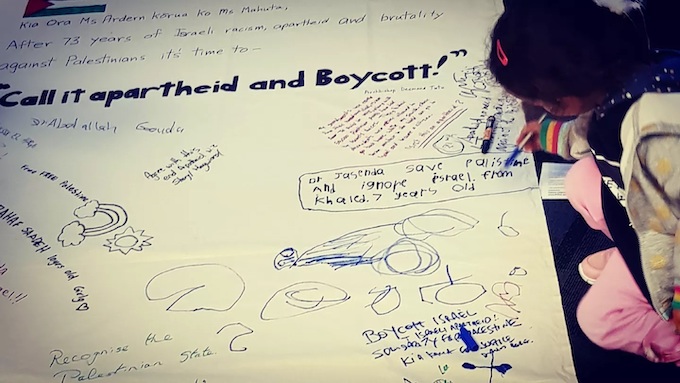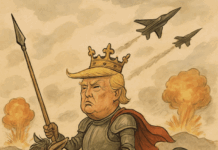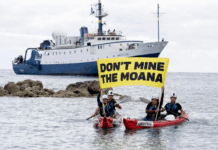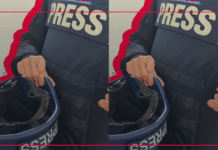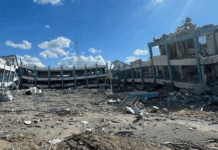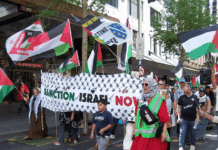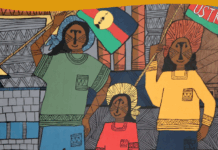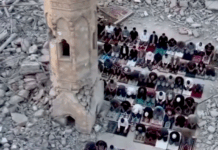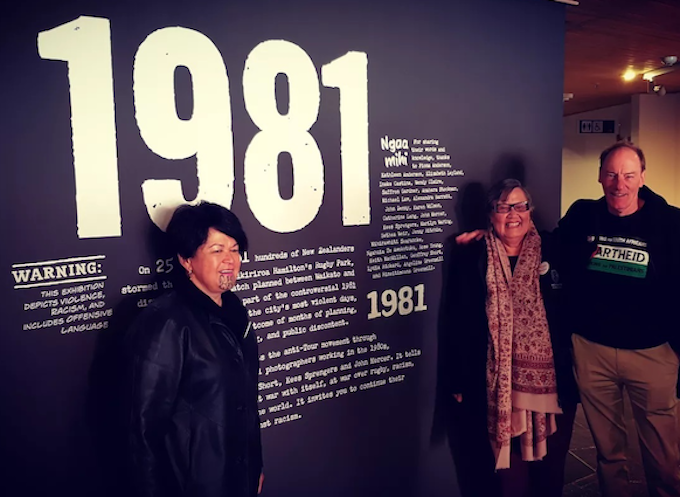
Asia Pacific Report newsdesk
After his release from prison in South Africa and he became inaugural president of the majority rule government with the abolition of apartheid, Nelson Mandela declared in a speech in 1997: “We know too well that our freedom is incomplete without the freedom of the Palestinians.”
Founding Halt All Racist Tours (HART) leader John Minto invoked these words again several times in Hamilton on Sunday as veterans and supporters of the 1981 Springbok Rugby Tour anti-apartheid protests gathered to mark the 40th anniversary of the historic events.
Starting at the “1981” tour retrospective exhibition at the Hamilton Museum – Te Whare Taonga o Waikato, the protesters gathered for a luncheon at Anglican Action and then staged a ceremonial march to FMG Stadium – known back then as Rugby Park – where they had famously breached the perimeter fence and invaded the pitch.
- READ MORE: 1981 Springbok Tour 40 years on: How Hamilton became a city of rage
- 1981 Springbok tour 40 years on: John Minto weighs up the legacy of the Rugby Park pitch invasion
- Stories told about violence: Hamilton during the 1981 Springbok tour
The exhibition features photographs by Geoffrey Short, Kees Sprengers and John Mercer of that day on 25 July 1981 when about 2000 protesters halted the second match of the tour.
“The Kirikiriroa protests were the outcome of months of planning, counter-planning and public discontent,” said curator Nadia Gush.
“1981 documents a period of unrest, with New Zealanders of all ages expressing their solidarity with marginalised black South Africans.”
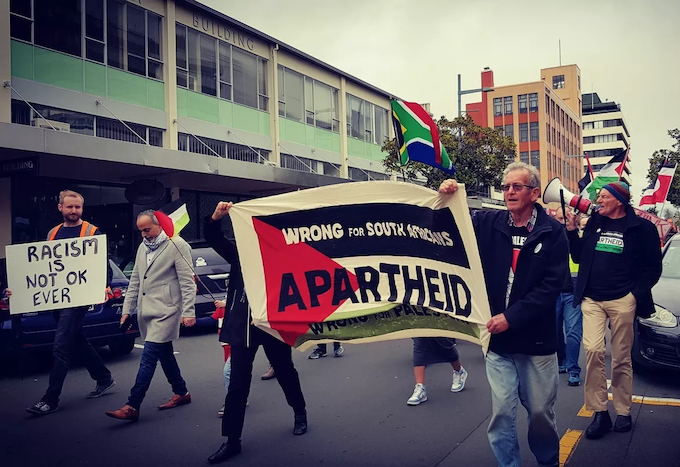
PSNA’s John Minto talks about the ongoing apartheid struggle over Palestine. Video: David Robie/APR
Their courage and determination led to a tense stand-off in the middle of the park with about 500 protesters huddled together with linked arms and defiantly facing both police squads and a 30,000 crowd baying for their blood.
Match called off
The match was called off by the authorities – interrupting the first ever live broadcast of a South African rugby match from New Zealand. And this triggered unprecedented violent scenes when rugby enthusiasts attacked protesters.
“Amandla Ngawethu!” – “power to the people!” (the cry of the African National Congress) – chanted John Minto, who has lost none of his powerful protest voice, amplified by a megaphone, as the crowd left Garden Place 40 years on.
“Remember racism… Remember Soweto… Remember Mandela,” came other cries from march marshals.
And a fresh addition this time was “Remember Palestine … Remember Gaza. … Freedom for Palestine” in recognition of the new struggle over Israeli apartheid in the Palestinian Occupied Territories and Gaza under military siege.
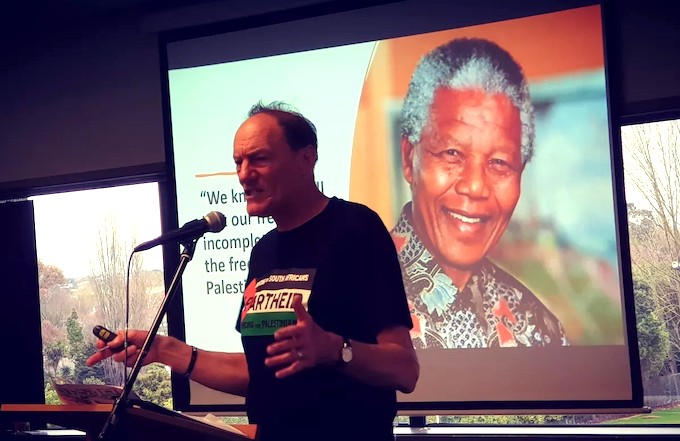
Marchers were decidedly much slower than in the original protest four decades ago and a cloudburst dampened the straggling ex-protesters. However, they were revived by the sight of a Tristram Street mural at the stadium devoted to the Springbok tour and the cancellation of the game.
Among the stragglers was Invercargill mayor Sir Tim Shadbolt who described the protests against 1981 Springbok Tour as an important historical event for Aotearoa New Zealand.
“I’ll remember those days for the rest of my life,” Shadbolt told Stuff reporter Aaron Leaman.
‘Victory for better NZ’
“It was a victory in a way and changed New Zealand for the better.”
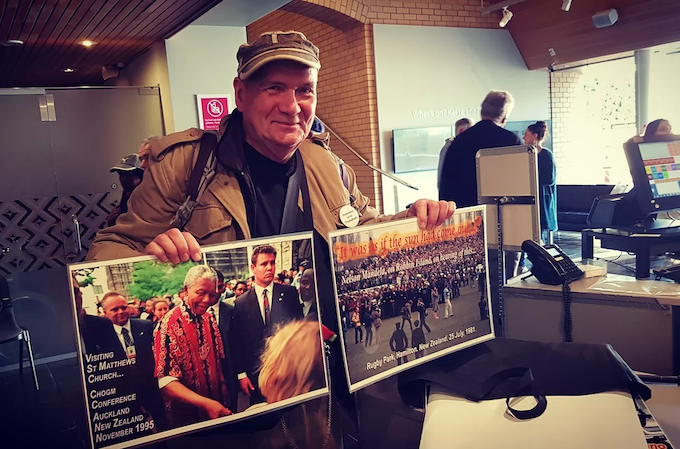
Stuff also quoted Angeline Greensill, who along with her mother, the late Eva Rickard, was among the group of anti-tour protesters who made their way onto the pitch at Rugby Park.
Standing up to the “icon of rugby” took courage, Greensill said.
The group passed around three sides of the stadium in the rain as Minto pointed out the “safe house” across the road – “opened up by a courageous man, Dr Anthony Rogers” – where he, Mike Law, Dick Cuthbert and many others were bashed by rugby supporters. A makeshift ambulance driving injured people to hospital was also attacked.
Twenty three people were treated for injuries in Waikato Hospital and police arrested 73 people.
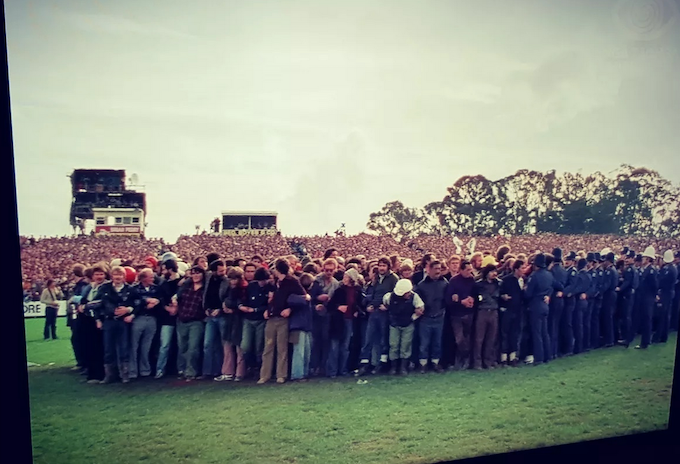
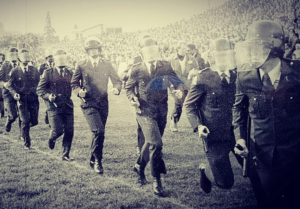
Minto praised the Waikato Rugby Union for recognising this vital event in New Zealand history.
Then the entourage moved into the stadium’s Bronze Room for speeches and sharing of memories of that fateful day.
Cheered loudly
They cheered loudly as they marked 3.10pm – the exact time that the match between the touring Boks and Waikato had been called off.
Speakers, including Minto, spoke about both apartheid and the 1981 Springbok tour and 70 years of apartheid and Israeli oppression in Palestinian.
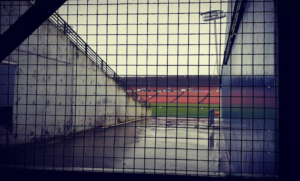
“Both Nelson Mandela and Bishop Desmond Tutu said, ‘Our freedom in South Africa will not be complete without the freedom of the Palestinians’,” declared Minto.
“It’s unfinished business.”
“This is the new anti-apartheid struggle,” added Minto, who is also national chair of the Palestine Solidarity Network Aotearoa (PSN). He challenged participants to join him in this ongoing campaign.
